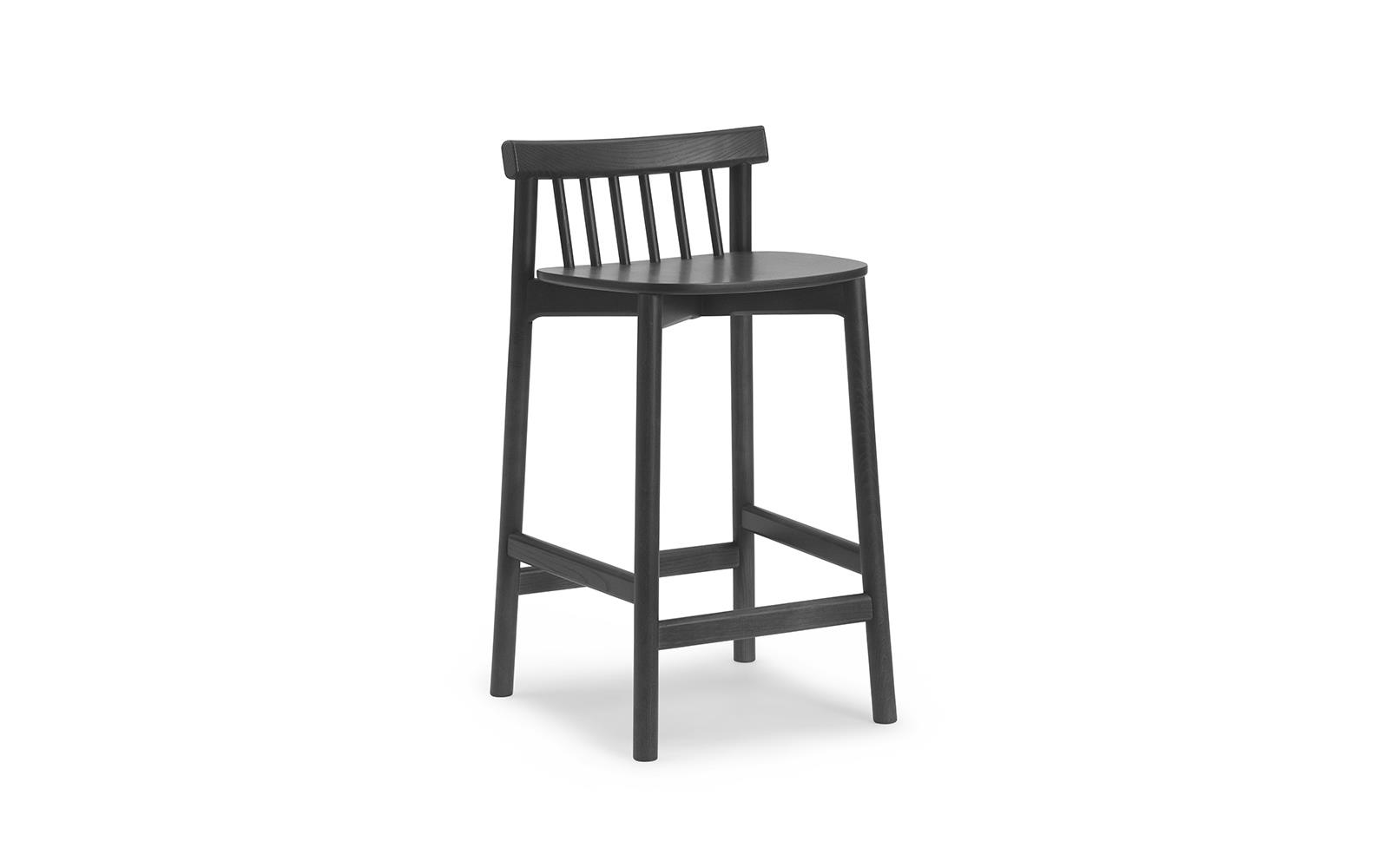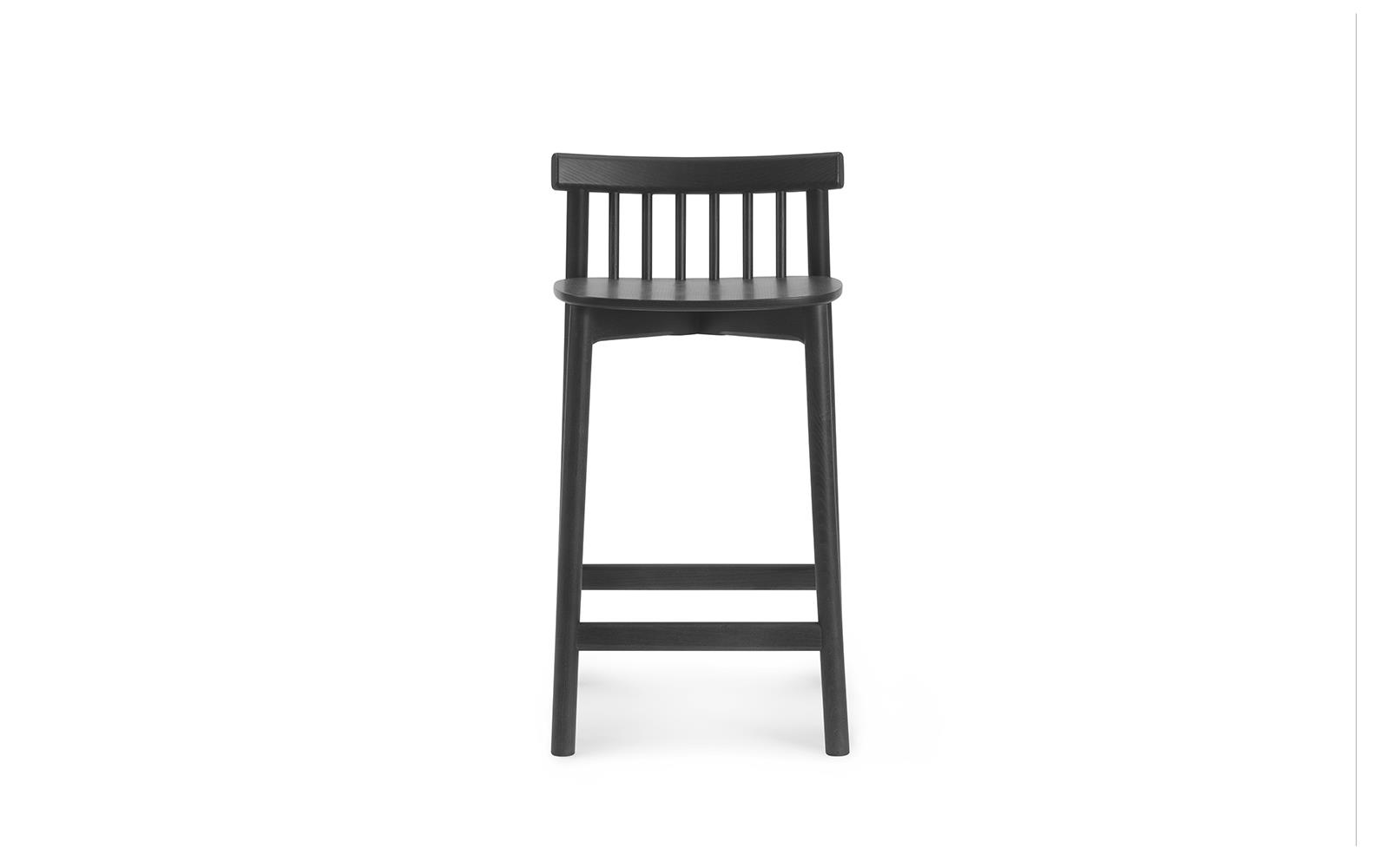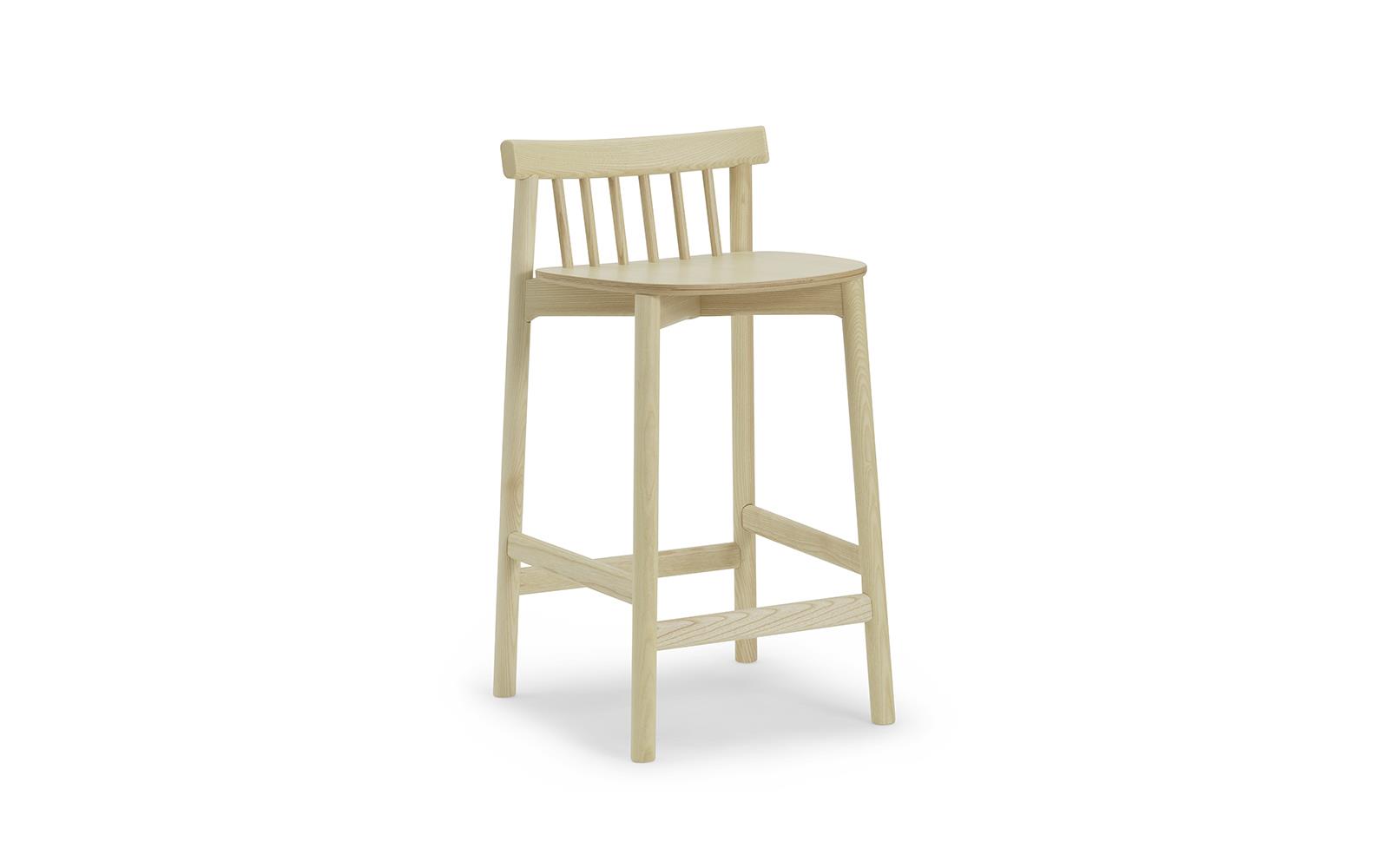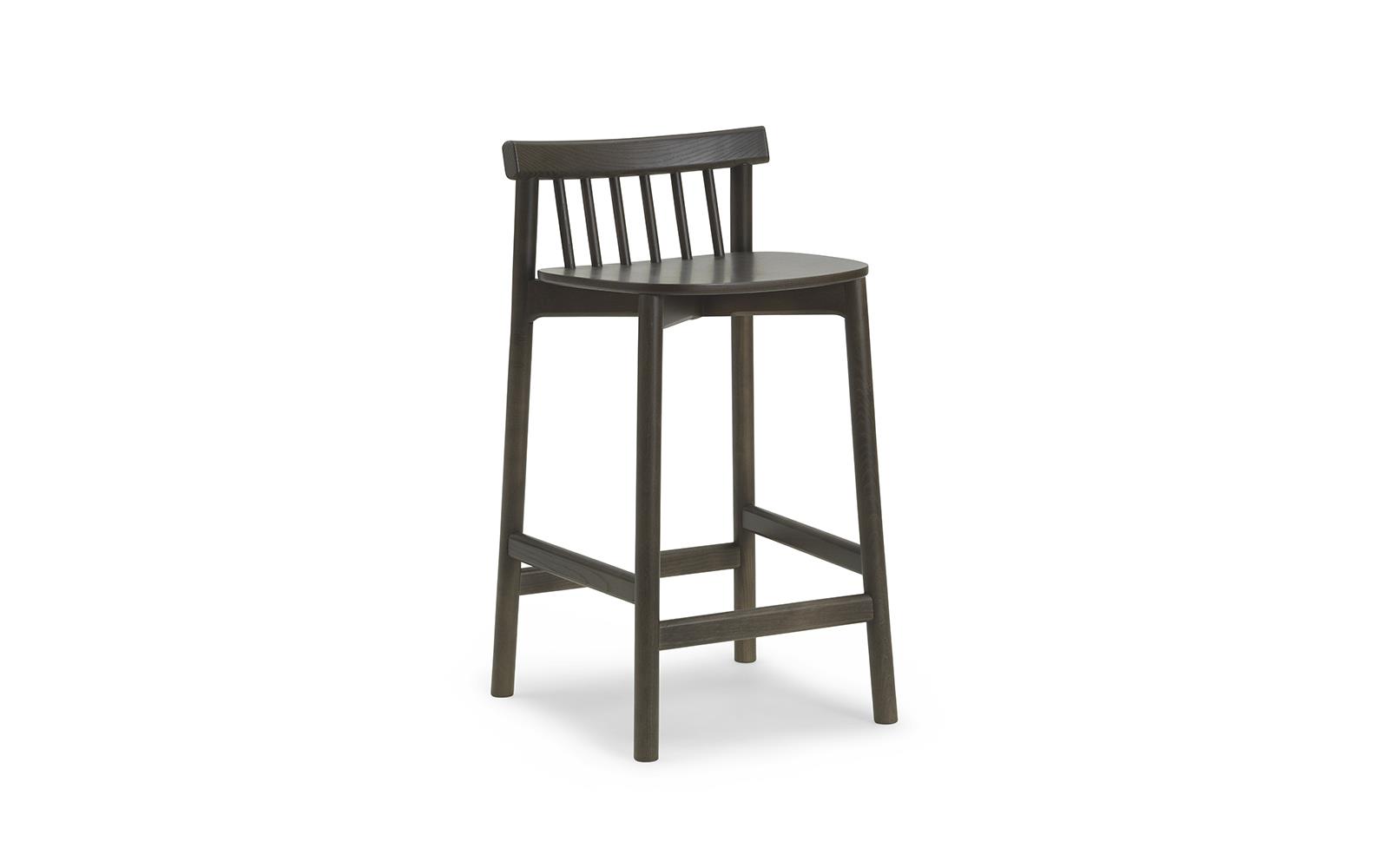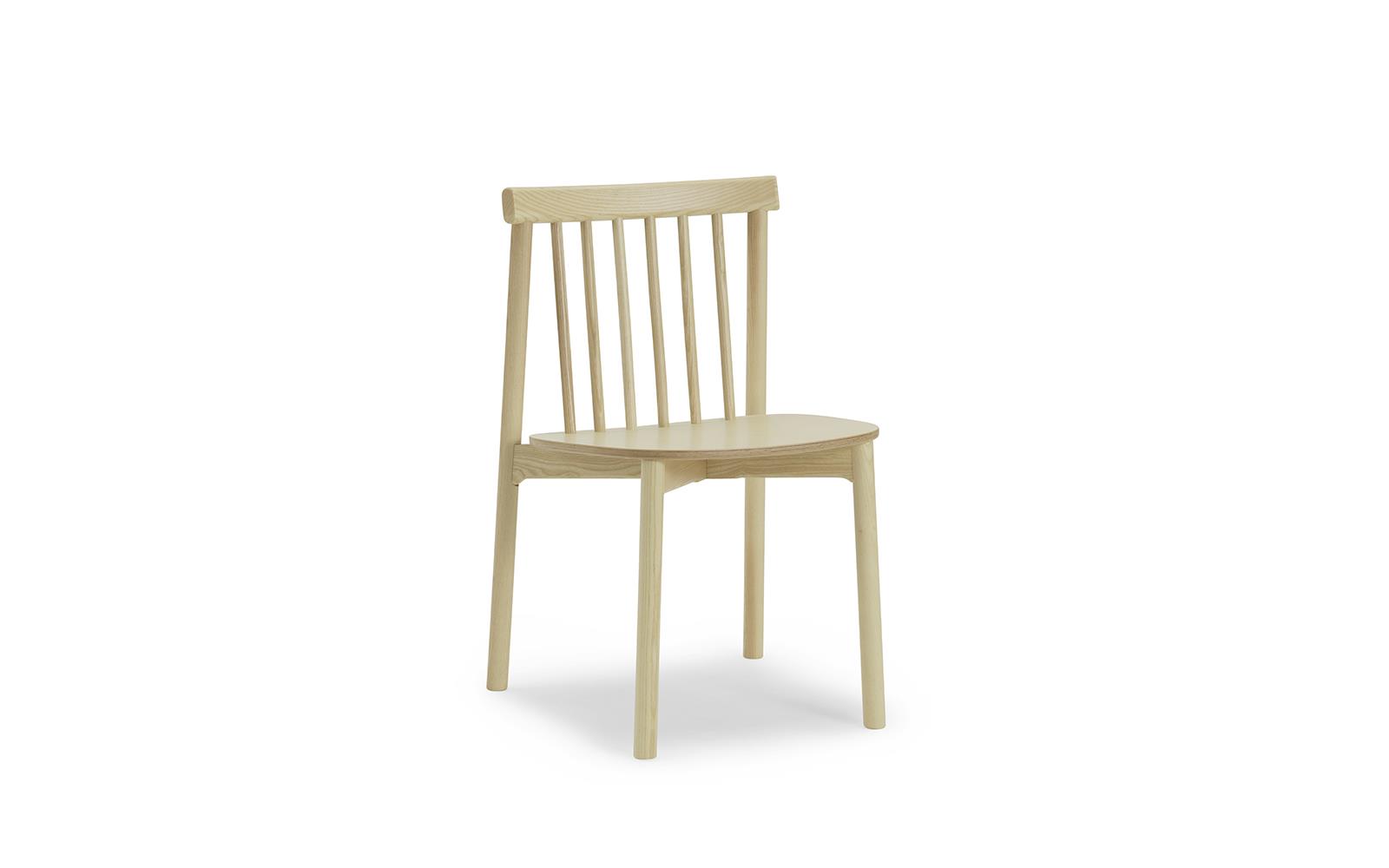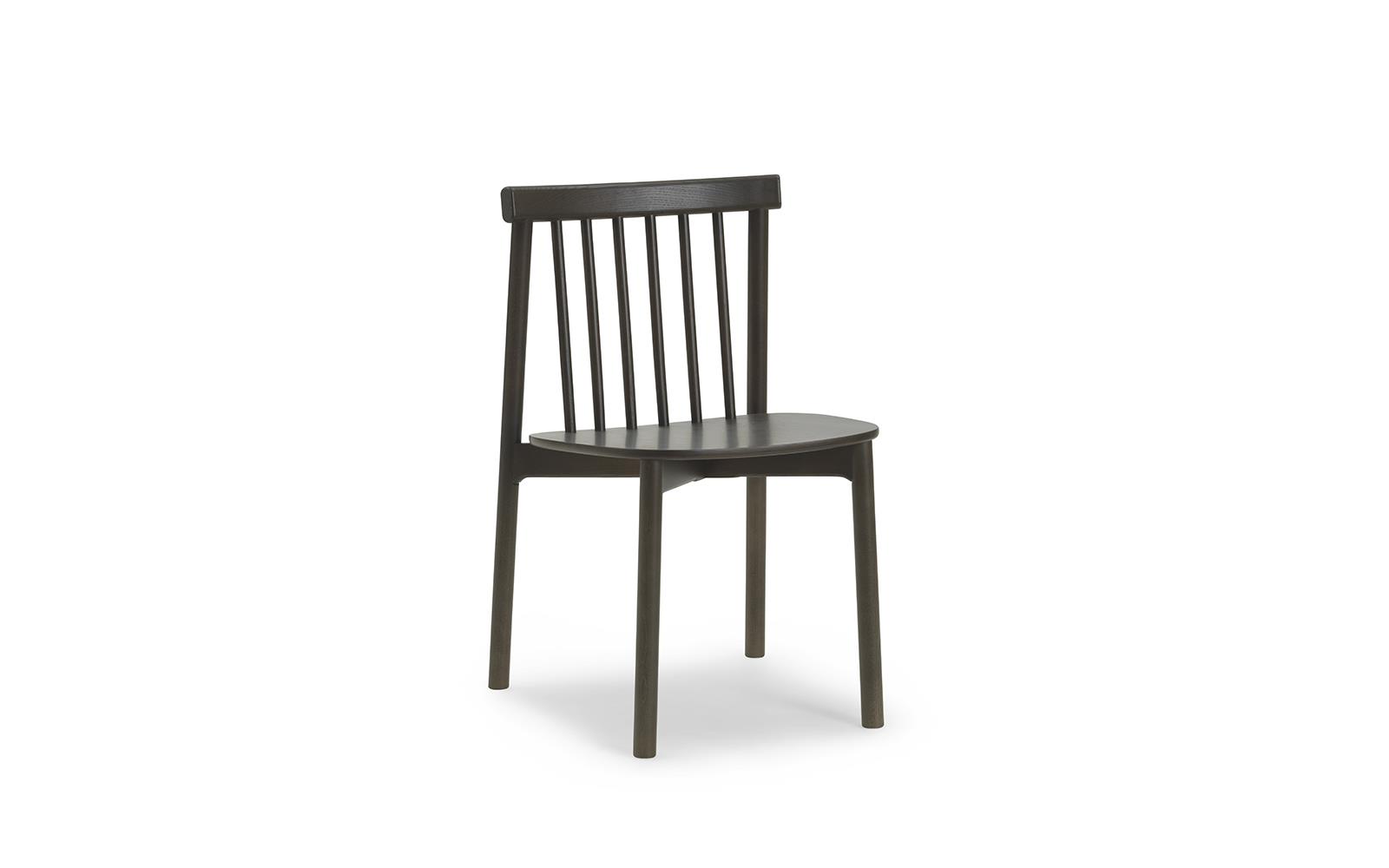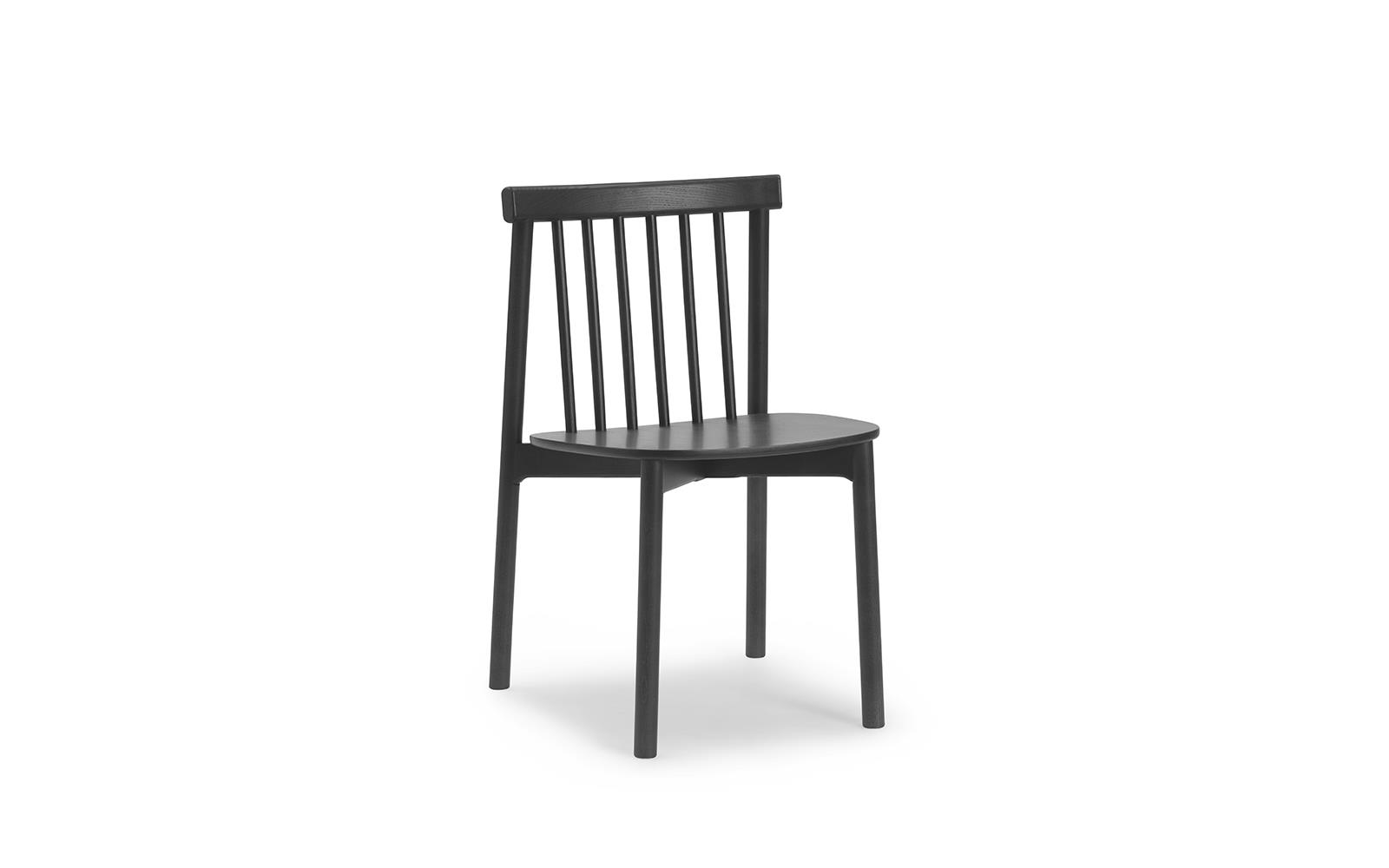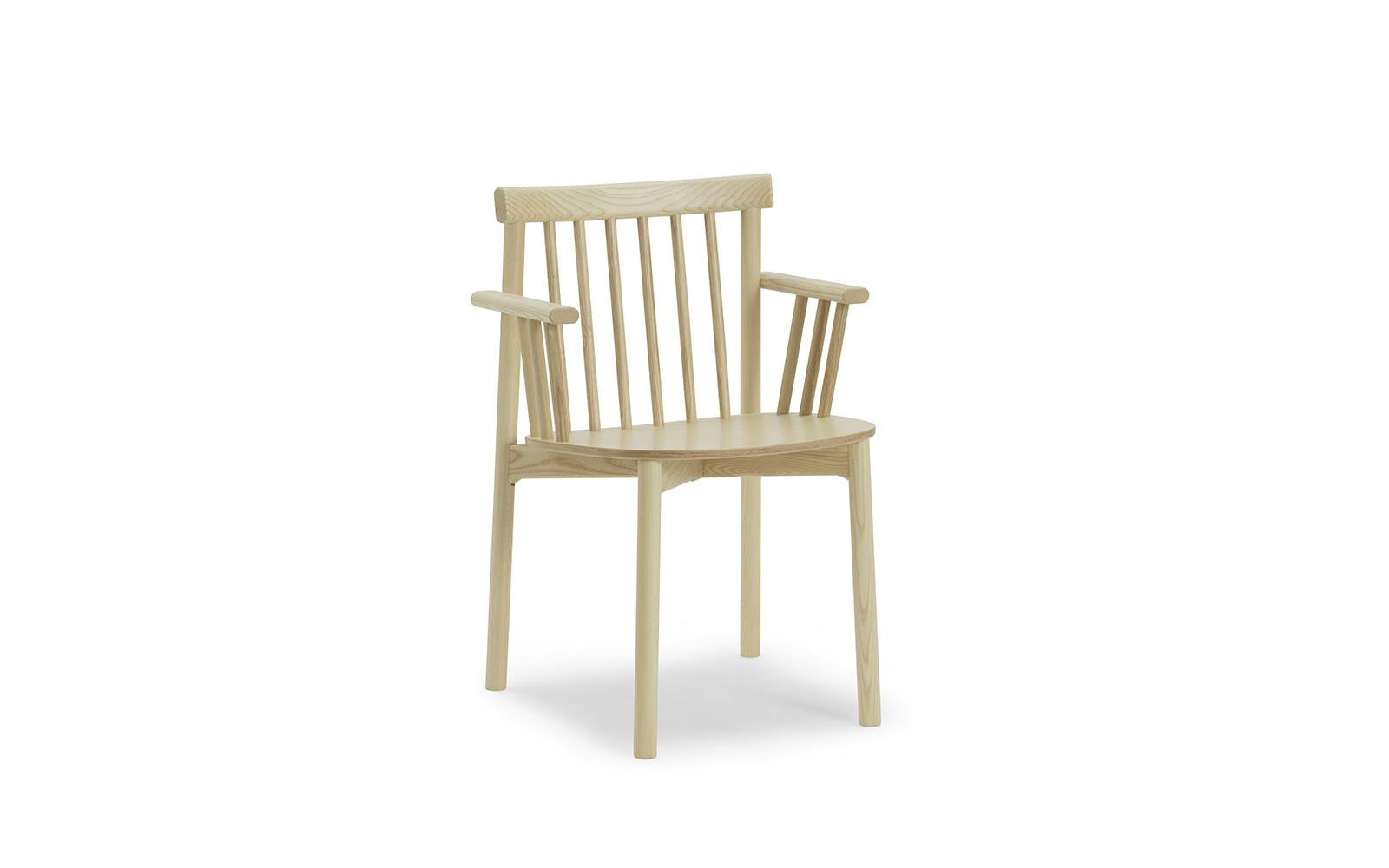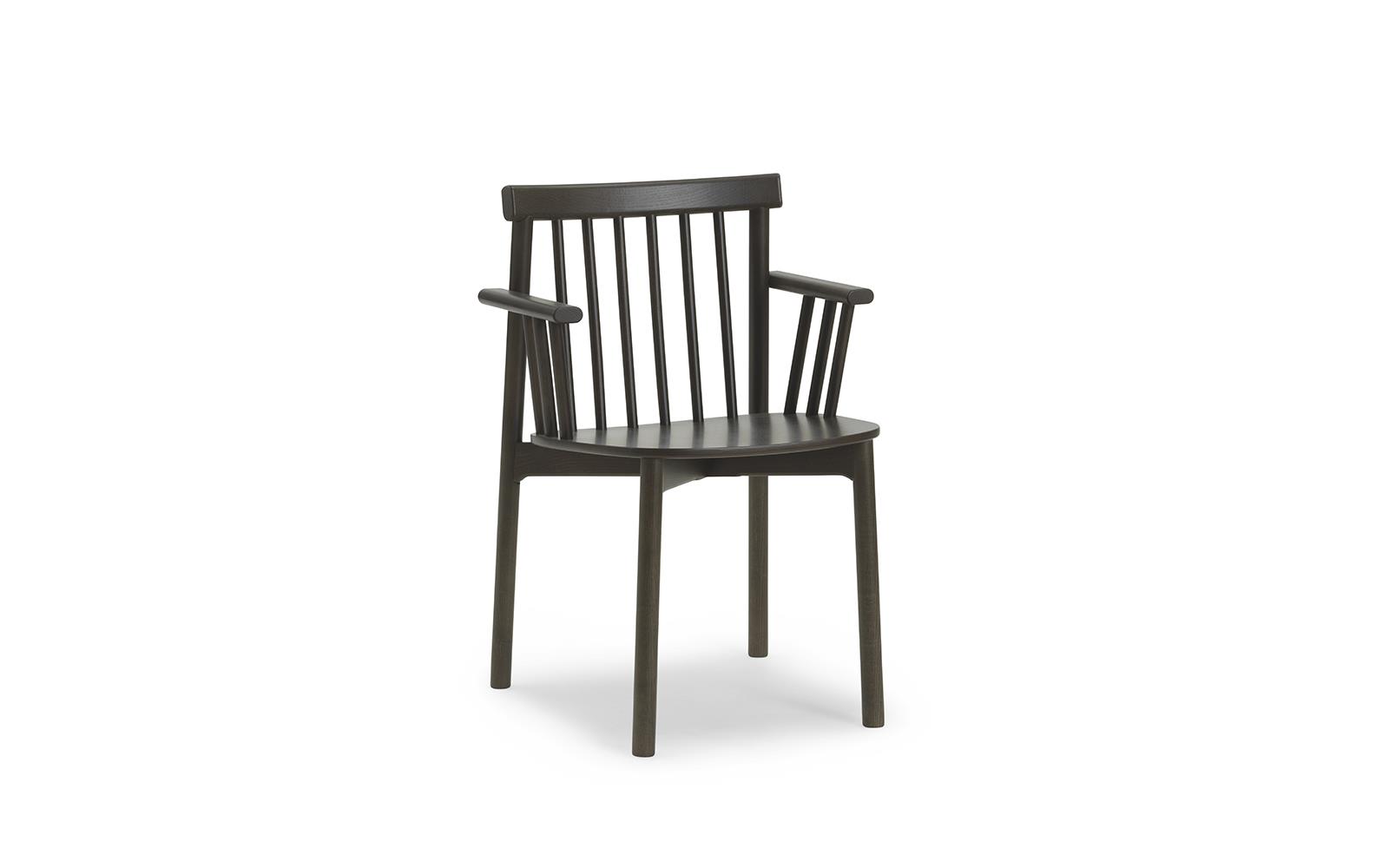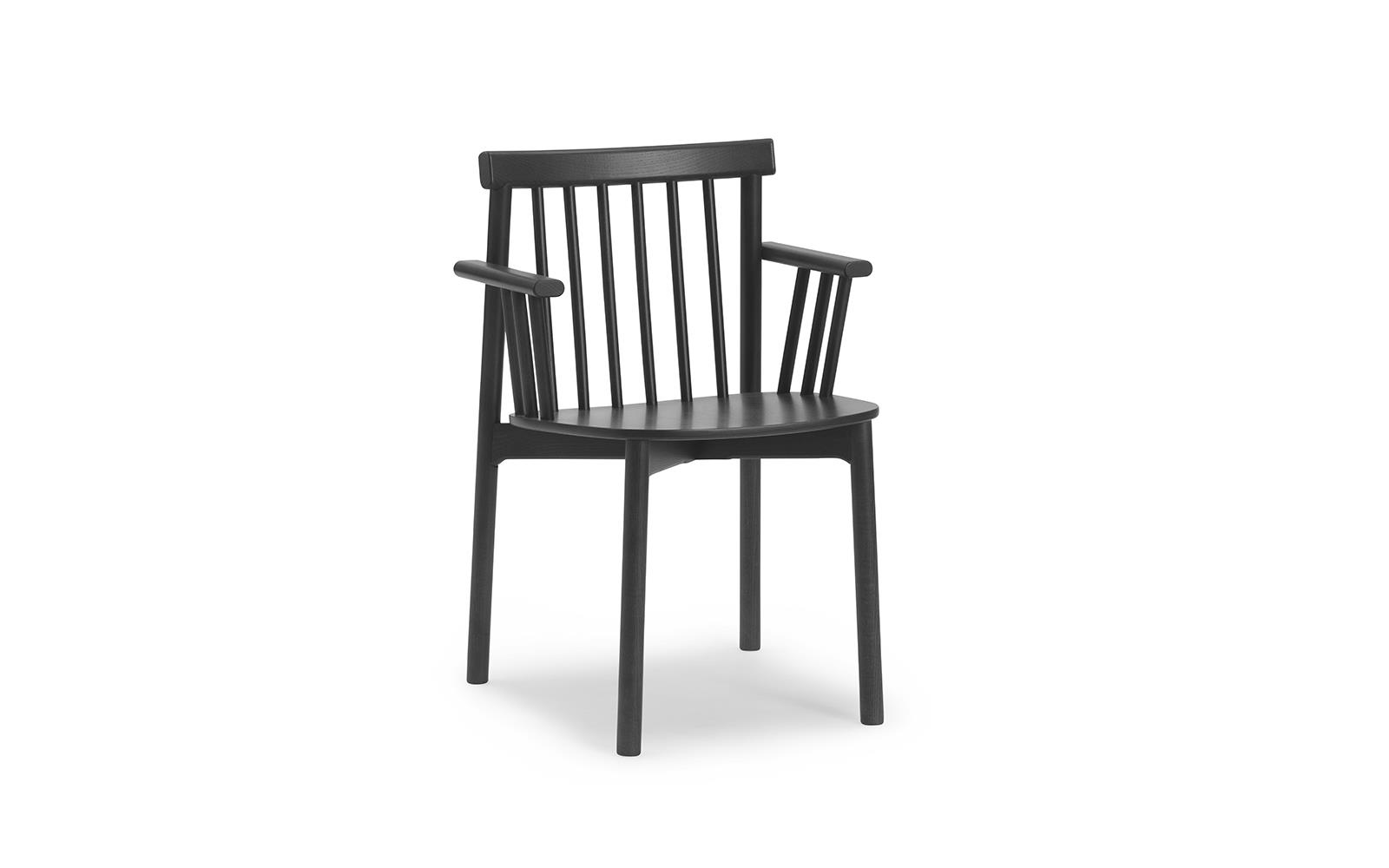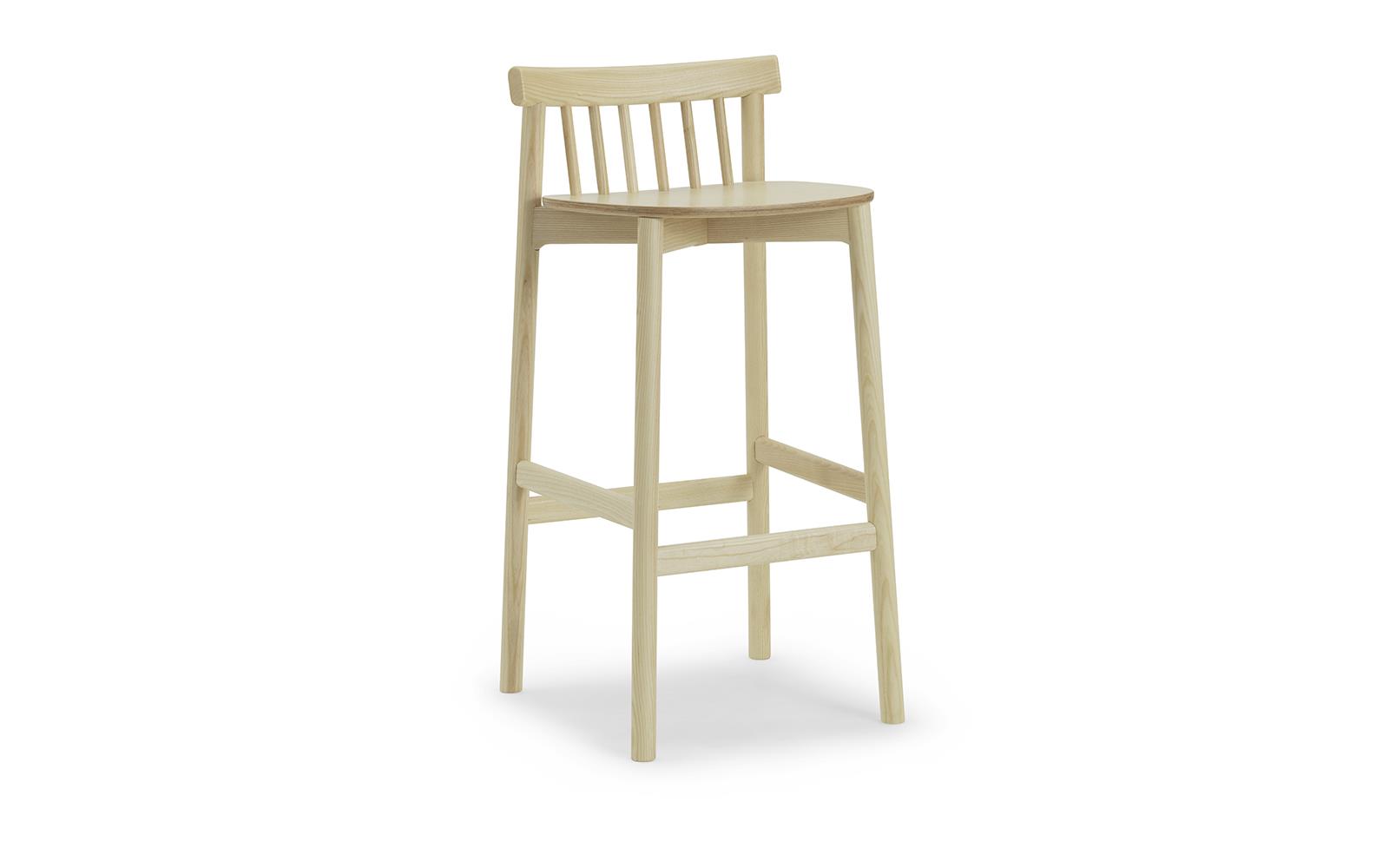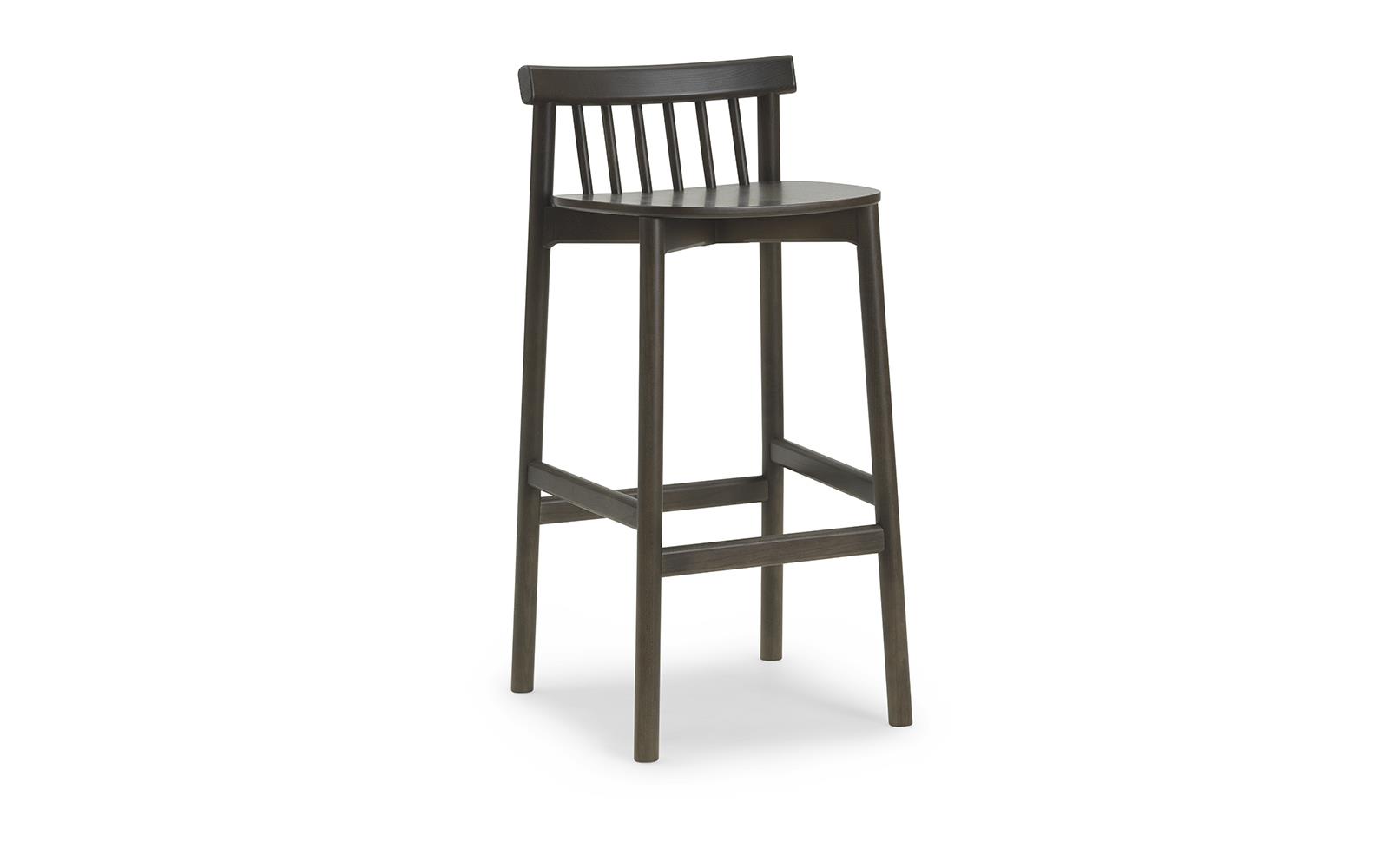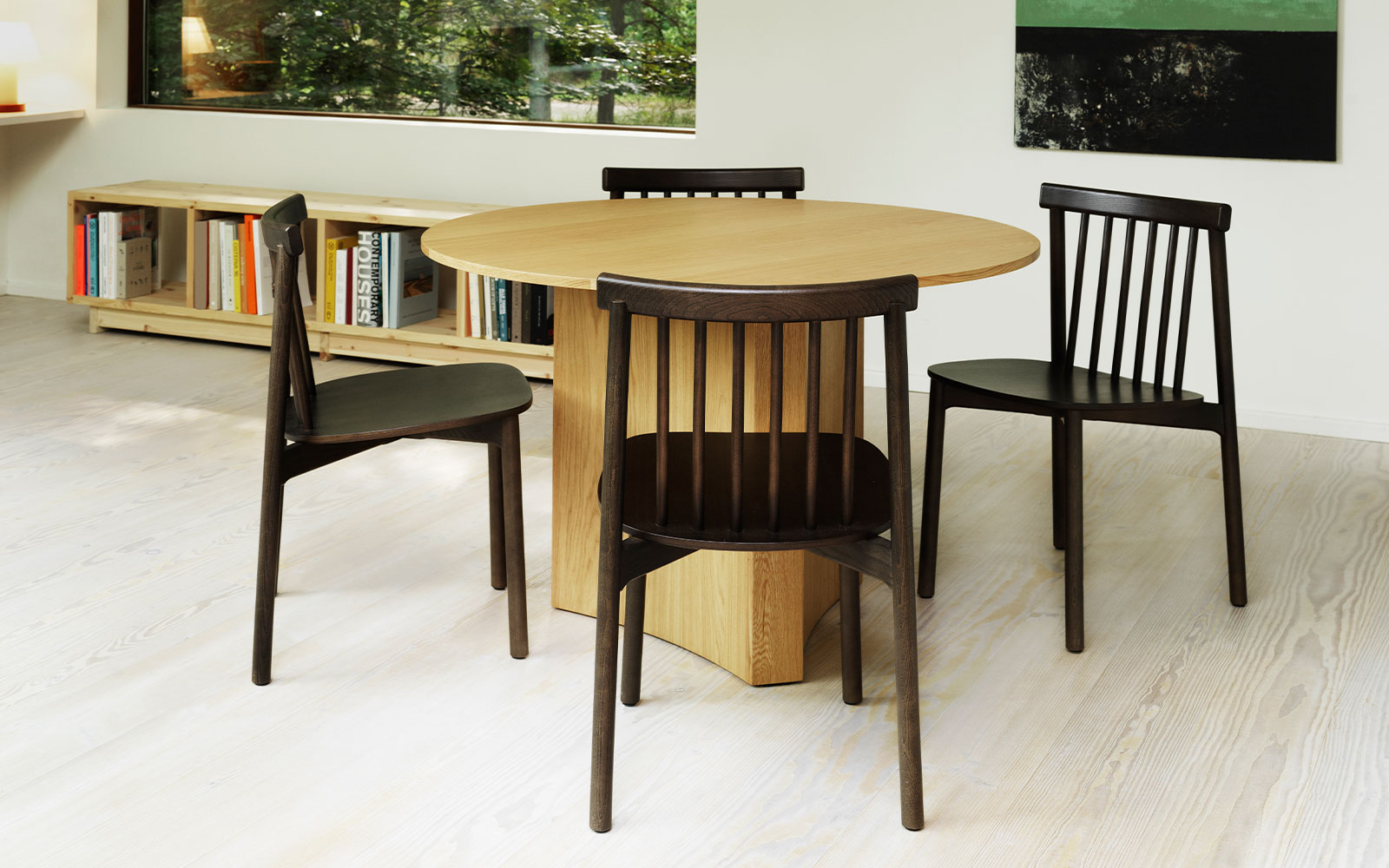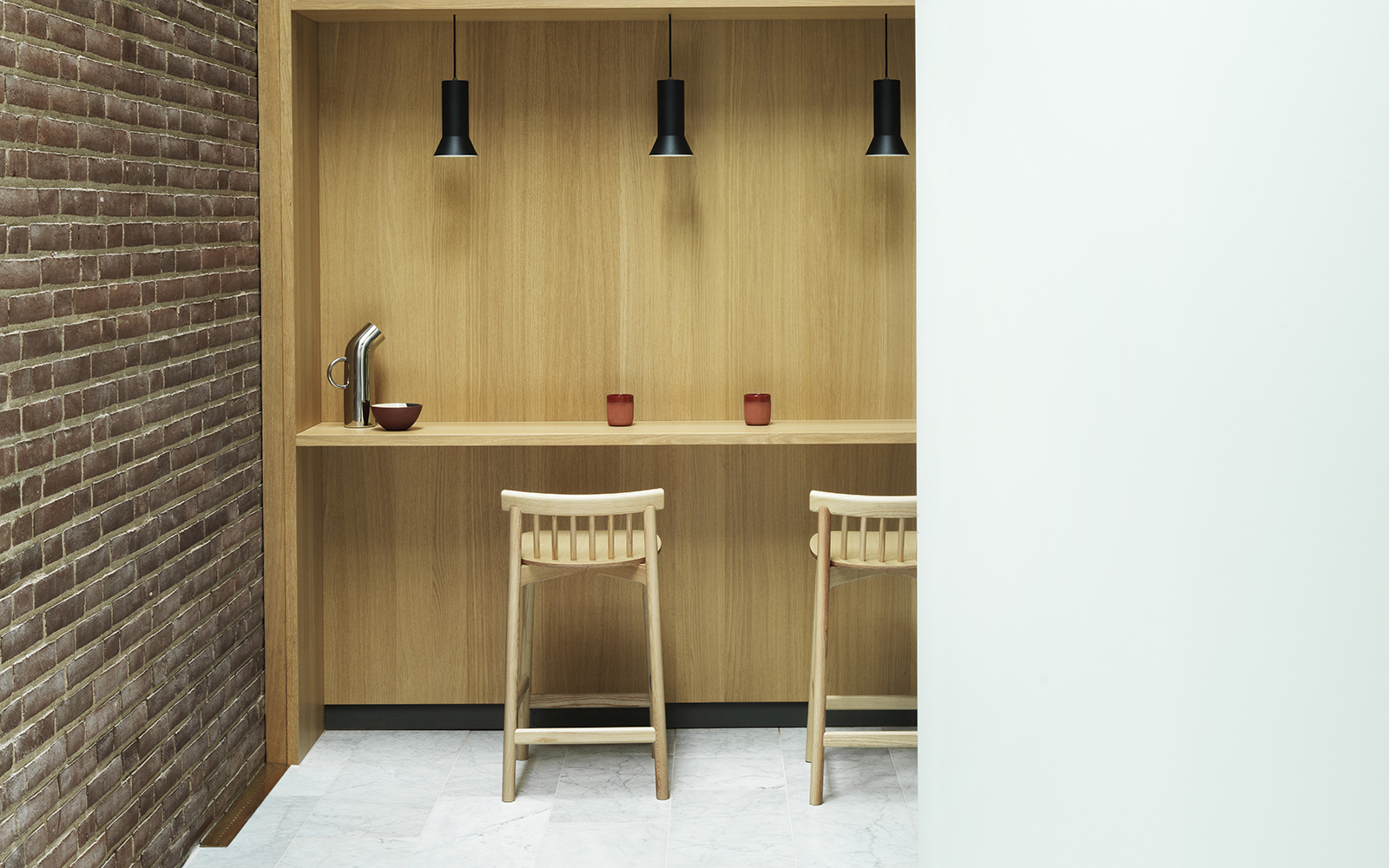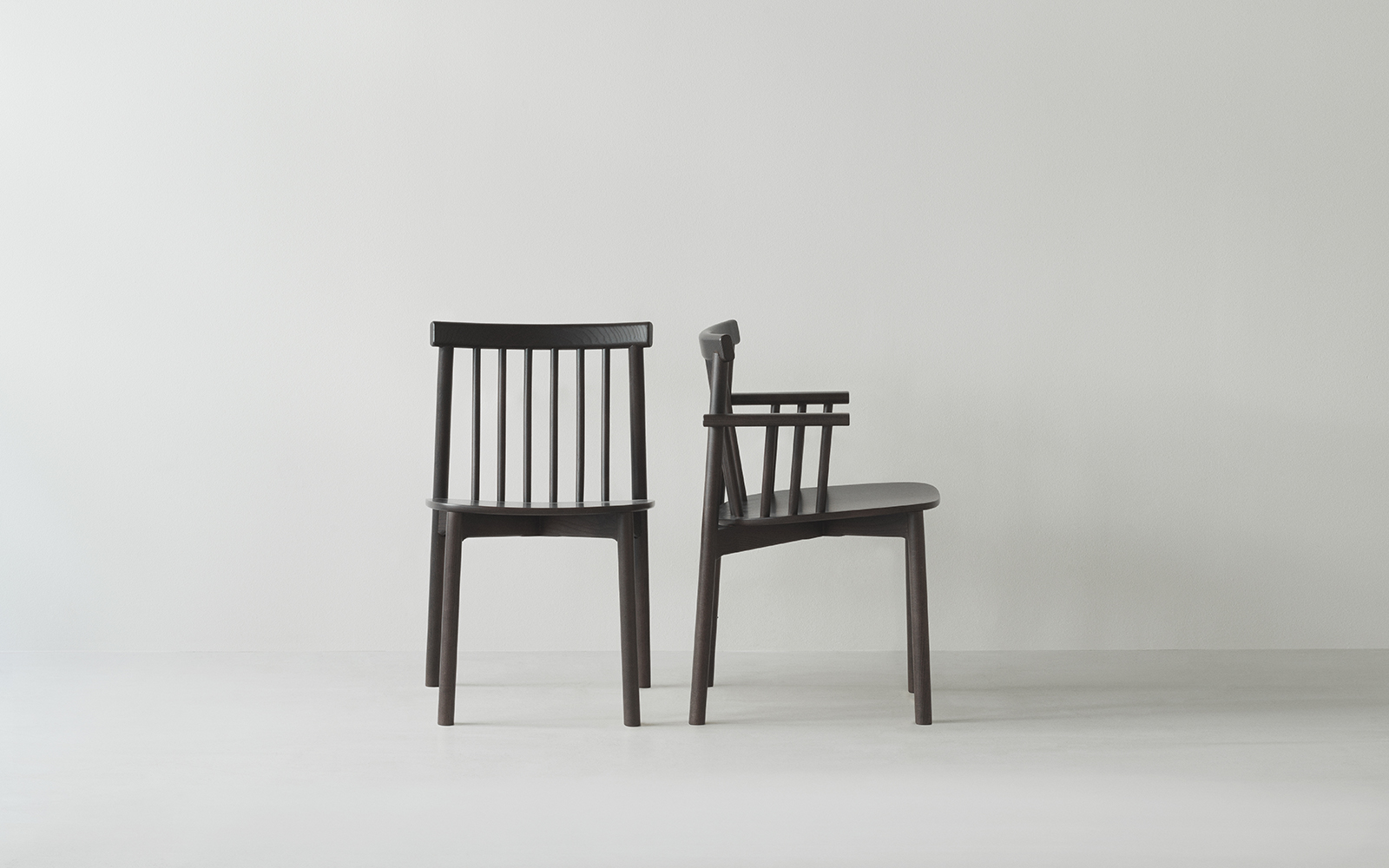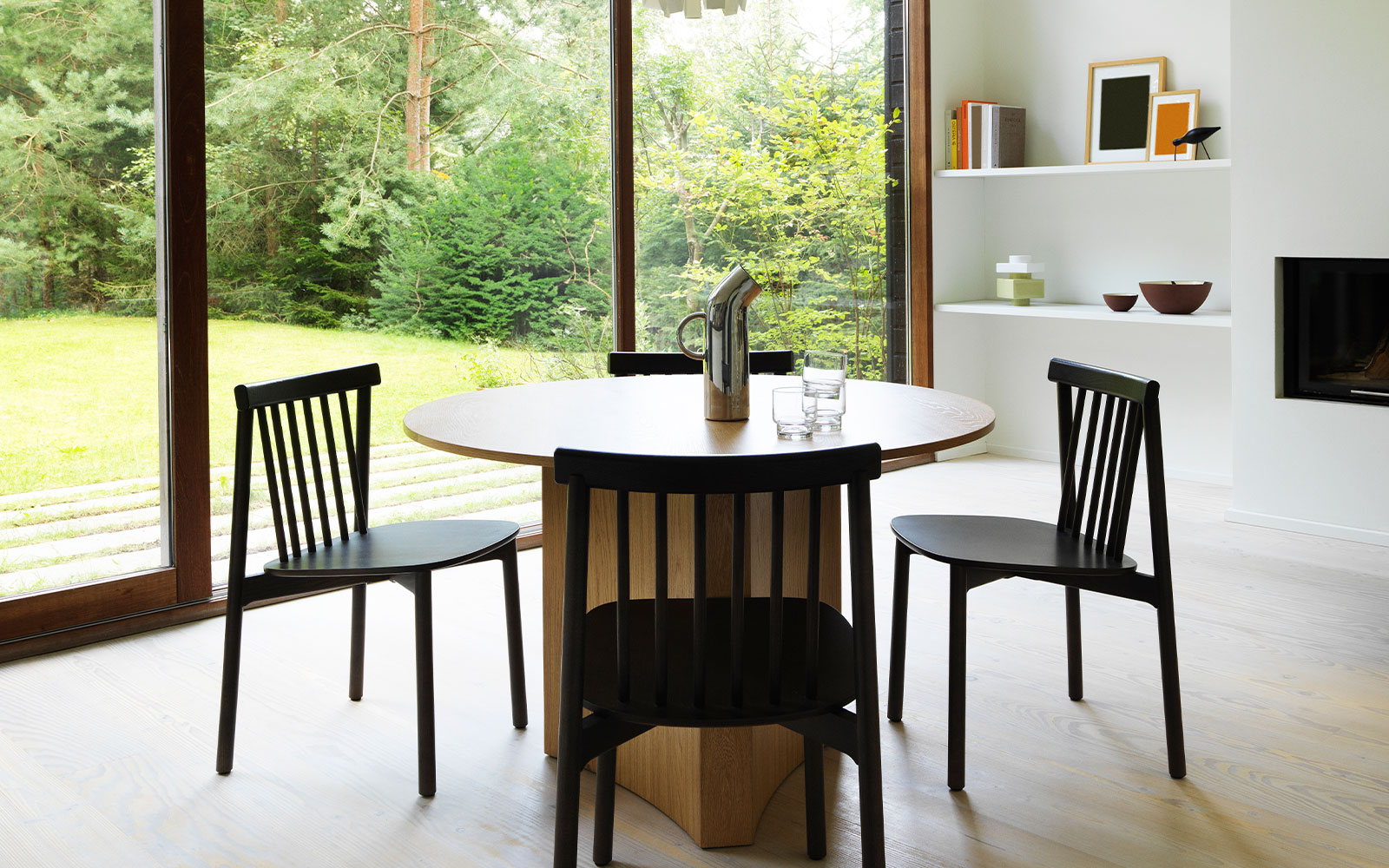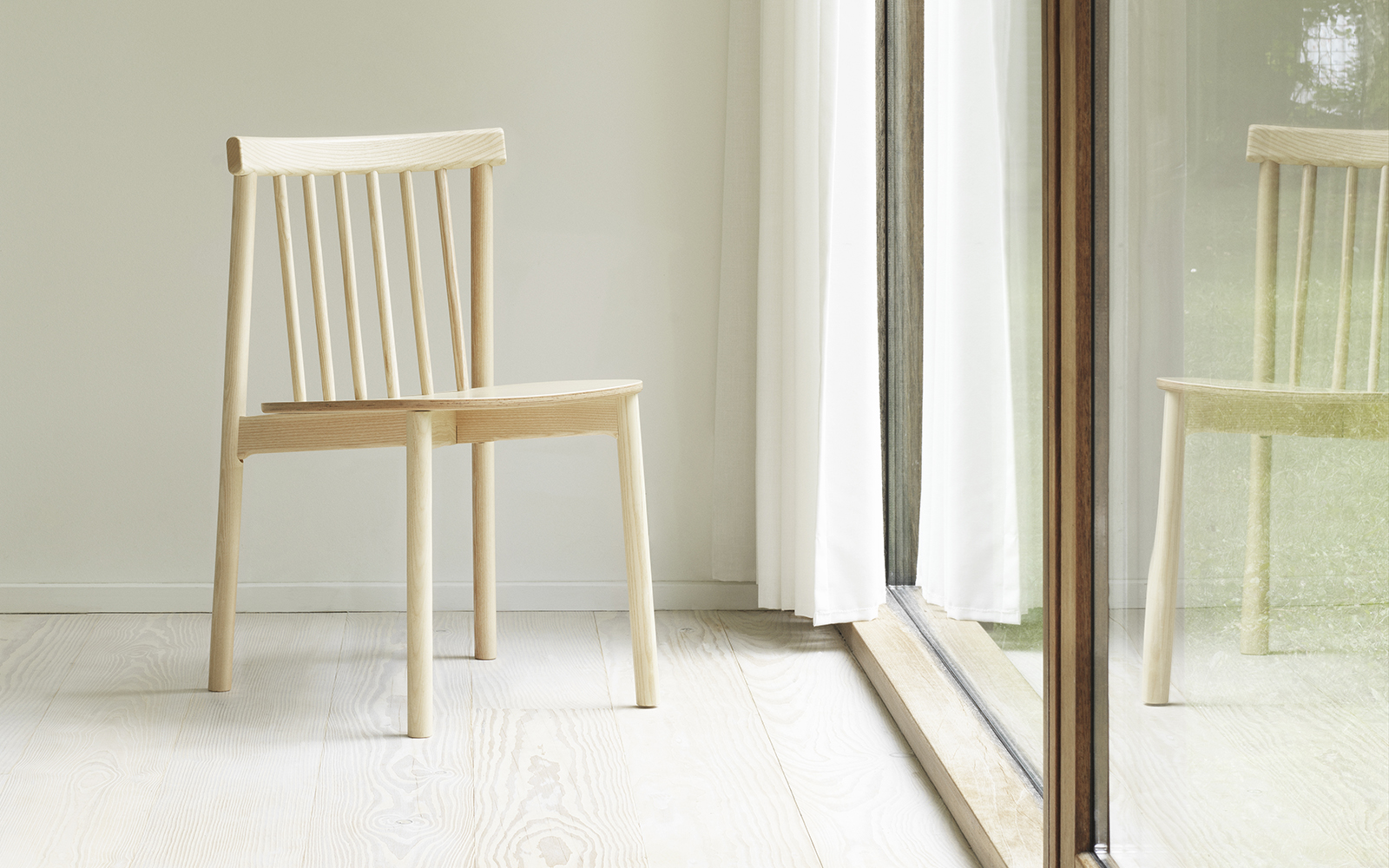Stained and lacquered ash
5,85 kg
Pind Chair collection is a contemporary interpretation of the classic shaker-style slat back chairs, as implied by its name, "Pind", the Danish word for a wooden stick. The collection comprises a dining chair, a dining armchair as well as barstools of two different heights. All are made from solid ash with an ash veneer seat and are available in various finishes.
Clean with a damp cloth.
Pind chair
Named after the defining wooden dowels in its design, Pind, the Danish word for wooden stick, encapsulates the spirit of iconic Shaker chairs from 19th-century America. Radiating timeless elegance, this furniture style is renowned for its slender and refined dowels delicately adorning the chair's backrest. With a clean and contemporary expression, Pind pays homage to the timeless artistry of traditional craftsmanship, bringing the classic wooden chair into the present. Designer Simon Legald elaborates, "The Pind chair collection is a study in seamlessly merging a classic chair with a contemporary design that meets the demands of the modern-day consumer."
Pind's design consists solely of solid wooden dowels, with the exception of the seat. The collection includes dining chairs with or without armrests, as well as bar stools in two heights. The backrest of Pind features a meticulously crafted elliptical curve, ensuring optimal comfort and improved back support. Gracefully supported by three subtly angled wooden dowels, the armrests harmonize with the backrest, further enhancing the chairs' aesthetic appeal.
Simon Legald
Simon Legald graduated from The Royal Danish Academy of Fine Arts in the summer of 2012. His work consists of both small- and large scale products. Simon's designs are often created in a dialogue between craftsmanship and industry. He also likes to incorporate the techniques that are necessary for the structure of a product into the design by highlighting them visually.
"Honesty is what makes a product understandable and is what describes the products functionality. If you understand the product, it does not need any explanation. The essence of my design is for it to be bought and used. Therefore, it has to satisfy not only the functional aspects, but also the psychological and aesthetic needs. For me simplicity describes the true identity of objects and makes them trustworthy. In my design, I try not to add any unnecessary details. I work with simplicity by highlighting the necessities instead of hiding them. It gives the product a simple and honest expression."
